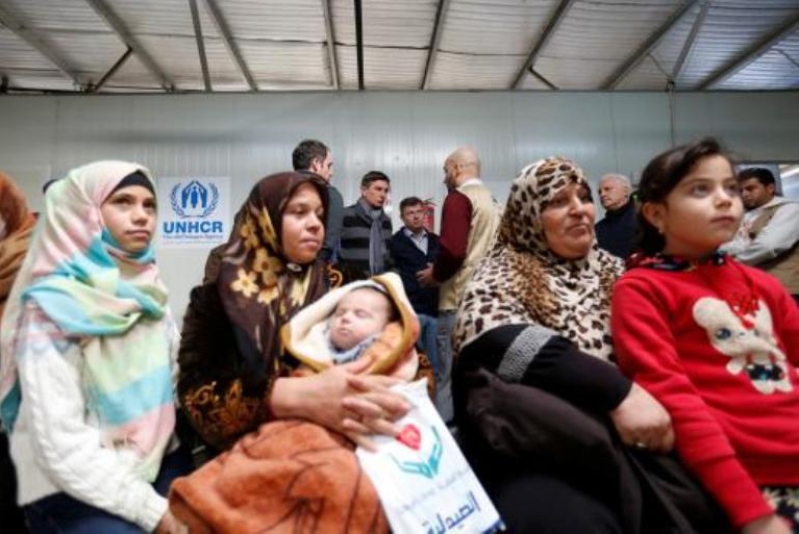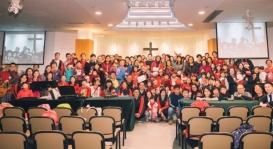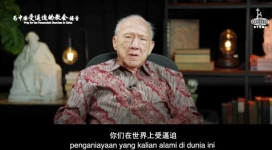
"The only explanation for this [immigration/travel ban] order is that refugees are being used by the president to appeal to his base at the expense of U.S. security," stated Natasha Hall, a former immigration officer with the U.S. Department of Homeland Security, in an opinion piece published Tuesday in The Washington Post. "Such a move is not only despicable and devastating to the people who desperately crave the safety of our country -- it erodes the American legal system by turning it into a political tool."
Hall said she has worked for the past decade within the long, grueling process of gaining refugee status in the United States, conducting in-person interviews with hundreds of refugees in 10 countries from 20 different nationalities.
Trump's order bans entry into the United States for citizens of seven, Muslim-majority countries for 90 days, suspends all refugee admission for 120 days, halves the total number of refugees allowed into the United States this year, and halts refugees from Syria indefinitely. Hall points out the order demands "a program... to identify individuals seeking to enter the United States on a fraudulent basis with the intent to cause harm, or who are at risk of causing harm." It calls for "standard screening and procedure," "questions aimed at identifying fraudulent answers and malicious intent," "a mechanism to ensure that the applicant is who the applicant claims to be," and "a mechanism to assess whether the applicant has the intent to commit criminal or terrorist acts."
"Whoever wrote this new order is evidently not aware that these screenings, procedures and questions already exist," she stated in her opinion piece.
She said she's witnessed countless refugees break down crying in the interview room because of the length and severity of the vetting process. "From that experience and numerous security briefings, I can affirm that whoever wrote Trump's executive order blocking refugees from the United States is wholly unfamiliar with the U.S. immigration system, U.S. laws, international law and the security threats facing our nation."
Hall said that while she can't speak for all refugee and asylum officers, she said those who have been working in immigration for years from opposite ends of the political spectrum are appalled by these new policies.
The process for any citizen of a Middle Eastern or majority Muslim country to get into the United States is tortuous and has become more so every year for the past 15 years, with additional screenings, interviews and other background checks, Hall said.
She said when she began with Homeland Security, DHS officers interviewed four Syrian or Iraqi refugee cases per day; they now interview only two per day to accommodate the range of questions and additional checks that have been added to the process. While the average wait time for refugee resettlement is 18 to 24 months, Iraqis and Syrians typically wait several years, she adds.
The process starts with the United Nations' refugee agency (UNHCR), said Hall. UNHCR officials conduct a series of interviews and screenings, including home country reference checks and a biological screening, such as iris scans. Then UNHCR decides if a case is suitable for resettlement and to which country an applicant can apply.
Hall said that out of more than 65 million refugees worldwide, about 0.01 percent were resettled to the United States last year.
She said after UNHCR, another international organization assists with resettlement processing by collecting documents and conducting more interviews with the families, looking carefully for discrepancies.
By the time Homeland Security steps in to conduct an interview, Hall said the officer already has a stack of biographical information on the refugee. Ironically, Iraqis, Syrians and Iranians, who are all now barred from entering the United States, are far and away the most well-documented refugees interviewed, she said.
Hall said she typically had to review a stack of high school degrees, baptismal certificates, marriage and birth certificates, honors and awards, photos with U.S. service personnel, recommendations from American military members, and conscription booklets or cards, which every man in those countries had to carry.
Since the United States has been in Iraq for more than 10 years, the government has a plethora of information on Iraqis - in many cases, terrorists, criminals and persecutors are recognizable and denied, said Hall, who said she knows of applications that are denied.
The officer then conducts a detailed interview, said Hall, recording every word to match it up with other documentation and past interviews. "Some refugees were so fearful of forgetting some detail of their lives that they brought notes to the interview to remember everything exactly," she said.
"Applicants have been reprimanded or denied for having those notes because of concerns that they are fixing their script. Every detail of their case is pored over and exhaustively analyzed."
Hall said U.S. government officials then perform more, intensive screenings. "The refugee applicants' information and fingerprints (also taken by Homeland Security officers) are run through the databases of nine law enforcement, intelligence and security agencies and matched against criminal databases and biographical information such as past visa applications," she wrote.
"Behind the scenes, officers and supervisors of varying political stripes debate and discuss each case endlessly. At U.S. Citizenship and Immigration Services headquarters, officers conduct more research, reconciling multiple interview notes, country conditions and background checks. They are trained to spot 'red flags' or issues that might make someone inadmissible. If a national security threat emerged, certain nationalities were placed under tighter scrutiny."
"Imagine a refugee waiting years in a camp, freezing in tents and unable to put their children in school. Some continue to receive threats, and some of our applicants were killed while waiting," Hall revealed.
She said those who support Trump's ban do not understand the life-and-death consequences of this stoppage for refugees. "Aside from the imminent danger many applicants face, this stop on refugee resettlement presents another issue: These security checks expire, which means that, if delayed, applicants will have to begin the process again. That will, in turn, delay the process for incoming applicants, creating a huge backlog in the system."
Hall reminds that about 60 percent of the 11,000 Syrians resettled last year in the United States were children. "The forthcoming delays could consume entire childhoods. Those who had been approved have likely sold all their belongings in preparation to move to the United States."
According to a report recently released by the conservative Cato Institute, out of millions of refugees resettled to the United States over several decades, just 20 have committed or attempted attacks. They only managed to kill three people - all in the late 1970s before the creation of the modern screening system. The annual chance of being killed in a terrorist attack committed by refugees is 1 in 3.6 billion a year.
"Not only does the executive order provide no logical benefit to national security, such policies feed into the extremist narrative that America hates all Muslims and actually hurt national security, as argued by Michael Hayden, former CIA director during the George W. Bush administration, and other government officials," Hall stated, who also reminds that all of this information is to Trump and his administrators.







